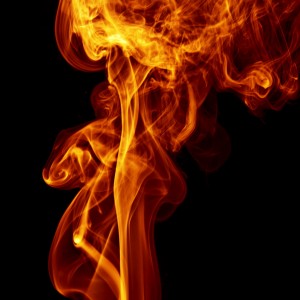 What is lung cancer?
What is lung cancer?
Lung cancer is the disease when cells in one or both of the lungs undergo abnormal changes and grow out of control. These abnormal cells cannot perform their regular function and reduce the lung’s ability to deliver oxygen to the blood. Tumors may also form as a result of the abnormal growth. In addition, similar to other cancers, lung cancer can spread to other parts of the body as the disease processes. According to 2008 statistics by the American Cancer Society, lung cancer is the second most prevalent cancer type in men and women (after prostate cancer and breast cancer, respectively), and it is the number one killer among all the cancer types.
What causes lung cancer?
Cigarette smoking is found to be responsible for the majority of lung cancer cases. Similar to other cancer types, lung cancer takes time to develop. Therefore, although lung cancer is often diagnosed among older people, the cause of the disease usually originates from a much younger age. For this reason, young people who smoke may not immediately see the damages done to their lungs, but they may have to suffer severe consequences later in life.
Other risk factors for lung cancer include:
- Secondhand smoke
- Air pollution
- Other lung diseases, such as tuberculosis
- Genetic inheritance/ family history of lung cancer
- Exposure to asbestos (a material used in the construction of older buildings)
- Inhalation of radon gas (a gas released by soil that contains uranium)
- Exposure to other harmful chemicals
Symptoms:
Symptoms may vary from person to person, but the common symptoms include:
- Persistent coughing
- Shortness of breath
- Chest pain
- Recurrent lung problems, such as inflammation and infection.
- Increased amount of sputum (mucus)
- Blood in coughing
Treatment:
Lung cancer is usually treated by surgery, chemotherapy, radiation therapy, or a combination of these. The specific treatment plan depends on the type of lung cancer, stage of the disease, as well as the patient’s health condition.
Prevention:
- Don’t smoke!! Current and former smokers have a much higher chance of developing lung cancer.
- Avoid secondhand smoke
- Avoid exposure to radon and asbestos. Have your home tested if needed.
- Avoid exposure to other harmful chemicals
- Limit alcohol consumption
- Eat lots of fruits and vegetables
- Exercise regularly
Resources:
- American Cancer Society: https://www.cancer.org/cancer/lung-cancer.html
- Centers for Disease Control and Prevention: http://www.cdc.gov/cancer/lung/
- Mayo Clinic: https://www.mayoclinic.org/diseases-conditions/lung-cancer/symptoms-causes/syc-20374620
- National Cancer Institute: http://www.cancer.gov/cancertopics/types/lung


